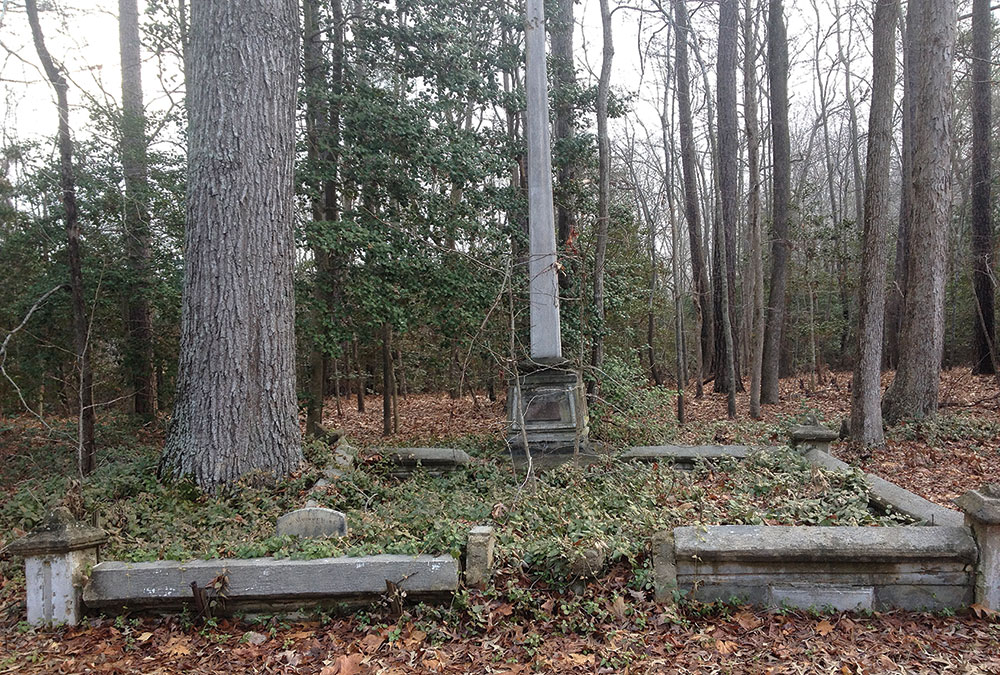
by Bessida White –
For many African-Americans, the search for the burial grounds of their slave-era ancestors can be challenging. Several members of Middle Peninsula African-American Genealogical and Historical Society (MPAAGHS) have worked diligently to document their family slave graveyards.
Gloria Waller, an experienced genealogist who has been researching her Native American and African-American ancestors for many years, has family oral history that suggests that members of her family were held enslaved and buried at Woodstock Plantation near Hartfield. Waller has conducted research, has visited the property, and has spoken to the owners, but has not been able to locate the cemetery and document her oral history. She has, though, found that some of her ancestors who were born enslaved, including U.S. Colored Troops soldier Samuel Mayo, are buried in the county’s church cemeteries, largely in unmarked graves.
Dr. Alvin Lomax has a settled family history that is explicit about the location of the cemeteries where his black and his white ancestors are buried. The two separate graveyards on the former Aspen Grove plantation in King William are readily identifiable. Tombstones mark the graves in the white cemetery while graves in the black cemetery have less permanent markings. The family of Lomax’s late cousin, Dr. Walter Lomax, now owns Aspen Grove and the adjacent Cool Spring, having combined them into the 800-acre Jubilee Farms. The properties have been restored and both cemeteries are well maintained. (See related story, page A2)
Even without such definitive history, other ways exist to identify historic cemeteries.
For example, Bessida Cauthorne White has found references to family gravesites in the 1892 will of her great-great-grandfather, Robert S. Cauthorn, who lived near Dunnsville in Essex County. The will requests that “one fourth of an acre of land around the graves of my parents be reserved for the burial of myself and any of my near relatives.” It also reserves “one fourth of an acre for the burial of any of my former slaves and their descendants who may wish to be buried there.” The Cauthorn graves are on property that has been owned by the Southside Rappahannock Baptist Association for more than a century. Although White has spoken to several persons who remember seeing the graves during the early 20th century, she has not been able to find the specific locations of the cemeteries.
Davaline Taliaferro is able to identify two Middlesex County cemeteries in which her slavery-era ancestors are buried. A maternal great-grandfather oysterman, James Jackson, and his wife, Dolly Whiting Jackson (born in 1829 and 1839, respectively), were early members of First Baptist Amburg who donated land adjacent to the church for the construction of Dumbar Elementary School. About a mile from the church at Deltaville is an old, rarely-used portion of its cemetery where the Jacksons are buried with two of their children. Their graves are marked by a monument and enclosure that were designed and erected by their son, artist and entrepreneur Joel Judson Jackson.
In addition, Taliaferro is the owner of property just off the Piankatank River near Hardyville that has been in her paternal family for several generations, having been owned by her great-grandfather David Harris.
Harris was one of six enslaved men who obtained their freedom by turning themselves in to the United States Navy at Stingray Point in July 1861, and who were among the first blacks to join the U.S. Navy.
A cemetery on that property contains numerous family graves, including that of David Harris and his wife, Nancy Henry Harris.
The documentation of African-American cemeteries will be the topic of a program this Saturday, February 8, at 11 a.m. at the Historic Middlesex Courthouse, General Puller Hwy., Saluda. College of William and Mary anthropologist Michael Blakey will talk about his “Remembering Slavery, Resistance and Freedom Project” (The Remembrance Project) and its search for historic African-American cemeteries. David Brown, archaeologist and co-director of the Gloucester-based Fairfield Foundation, will describe the cemetery component of the foundation’s work in the Middle Peninsula.
Persons attending the program will learn how they may go about finding their family and community cemeteries and how to have them included on the cemetery database being developed by The Remembrance Project. The program is free to the public and is co-sponsored by the Middlesex County Museum and Historical Society and the MPAAGHS. For further information, call 804-758-5163.



